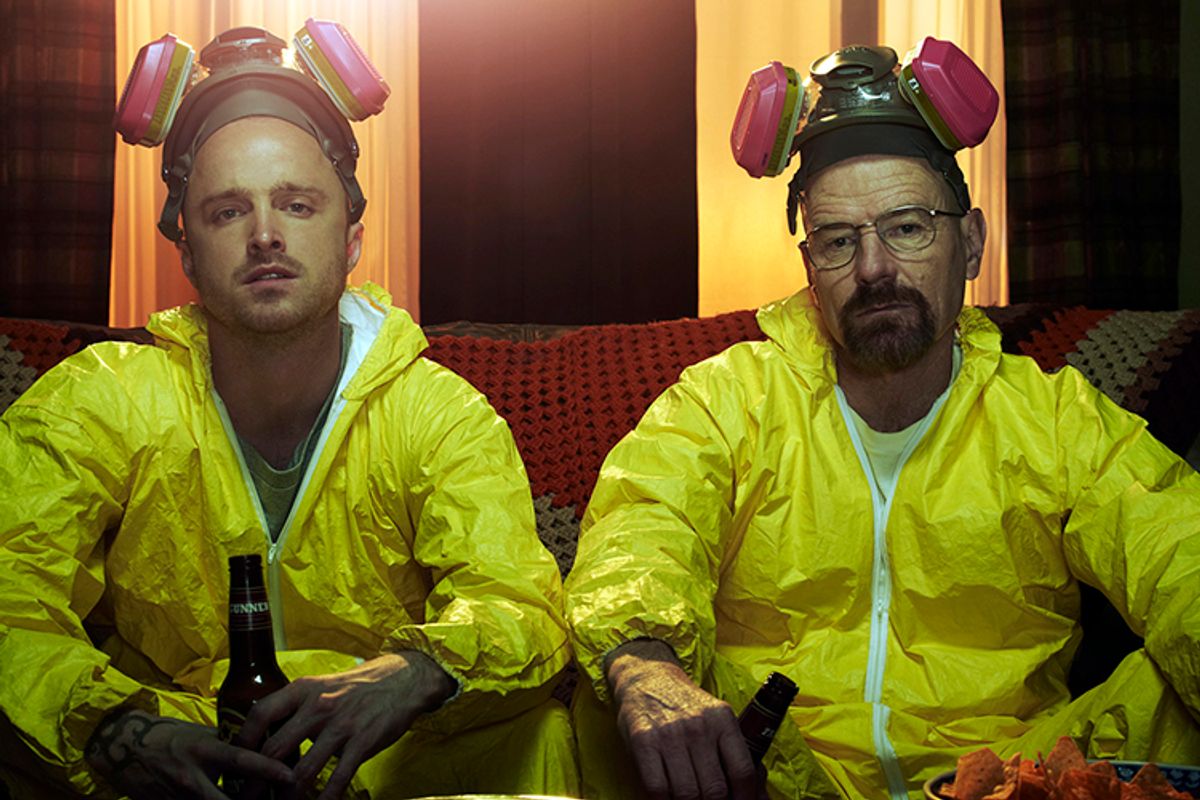BOOKS
"To the End of June" is Cris Beam's "tentatively hopeful" new book told through select stories of parents and some of the over 400,000 children currently in the American foster care system. In analyzing a deeply bureaucratic and complex system, Beam handles both her observations and solutions with caution rather than tendentiousness, writes Laura Miller:
"To the End of June" is part history and overview, part in-depth portraits of foster children and parents. Beam, although never a foster child herself, left her emotionally disturbed mother’s house at the age of 14 and never saw her mom again. Then, at 29, she became a foster parent, taking in a former student, a transgender teenager she now considers her daughter.
In researching this book, Beam spent considerable time over several years with a married couple in Brooklyn, N.Y., the Greens, who took in multiple foster children (in addition to their three biological children). She also visited the household of Mary Keane, a woman who bought a 12-bedroom Victorian house in Yonkers to provide a home for foster children (including six siblings from an abusive mother), several of whom she has adopted. Beam spoke to case workers, therapists, former foster children and other people who know what the system is like from the inside.
The new audio biography, "The Chris Farley Show," delves into the insecurities and internal struggles that plagued the actor/comedian throughout his tragically short life. The book cuts through the image of Farley as the larger-than-life "fat guy in a little coat," and explores the lead-up and haunting last moments of Farley's death, writes Kyle Minor:
But the newly released audiobook edition of “The Chris Farley Show,” an oral biography co-edited by Farley’s brother Tom and journalist Tanner Colby, is full of reminders of how close he had already come to a mid-career breakthrough. For one thing, Dreamworks co-founder Jeffrey Katzenberg had recruited him to voice the lead in “Shrek,” and his performance of the portions of the script he recorded had caused the animators to begin to imagine a “Chris Farley version of the story,” as screenwriter Terry Rossio remembers, a Shrek unlike Mike Myers’ jovial ogre “who has a sense of humor that’s not that good, but it makes him happy.” Farley’s Shrek, instead, “was born of frustration and self-doubt, an internal struggle between the certainty of a good heart and the insecurity of not understanding things.”
MOVIES
Put together an ambitious young director with two terrific actors, masterful cinematography and a "haunting musical score," and you'll end up with a picture as "luminous and unforgettable" as "Ain’t Them Bodies Saints," a smouldering crime romance set in Texas that engages with the themes of "love, death, the American landscape and the possibility of redemption," writes Andrew O'Hehir:
There’s no political angle or social issue or “news hook” on which to hang David Lowery’s extraordinary film “Ain’t Them Bodies Saints.” Unless you count the deep-seated mythology and pathology of American life, all our yearning for freedom and lust for violence and Huck Finn dreams of new beginnings, and all the ways we keep falling in love and making the same mistakes over again. Visually ravishing, tonally commanding and built around magnetic performances by Rooney Mara and Casey Affleck as Bonnie-and-Clyde doomed lovers, “Ain’t Them Bodies Saints” is a tragic but not despairing tale of fatal romance set in the Texas hill country in the mid-1970s. It marks the arrival of an immense talent who will be new to most moviegoers – although Lowery is a well-known figure in the indie-film world – and it’s surely one of the best American films of the year.
TELEVISION
In the season premier of "Breaking Bad," it's obvious that "things are starting to come full circle" for Walter White, writes Jen Chaney. An empty swimming pool flash-forward is the ominous signal of White's impending downfall, and in a single glimpse, anticipates "a sense of where this antiheroic saga is headed:"
It’s clear that “Breaking Bad” isn’t going to waste a single minute drawing that narrative line. This TV version of a literary thriller has reached the point where the pieces are finally coming together and all we want to do is whip through its pages and finally devour that much-craved resolution. But we can’t, because there are seven more episodes to go. For those who have binge-watched most of “Breaking Bad” until this point, the notion of waiting, week by week, for the rest of Walter White’s story to drip-drip-drip out must be excruciating. But there’s a lesson in it, too. After watching a show about a man who comes to think he can have everything his way, whenever he wants, it’s good to be reminded that most people can’t. We are not in control, so we must accept it, respect it and patiently savor the prolonged, delicious agony.







Shares